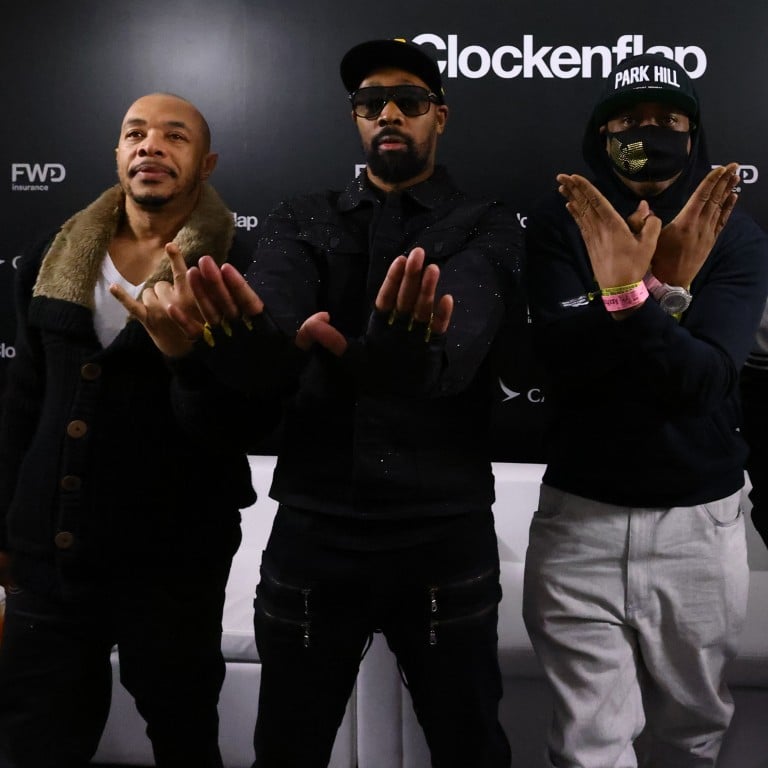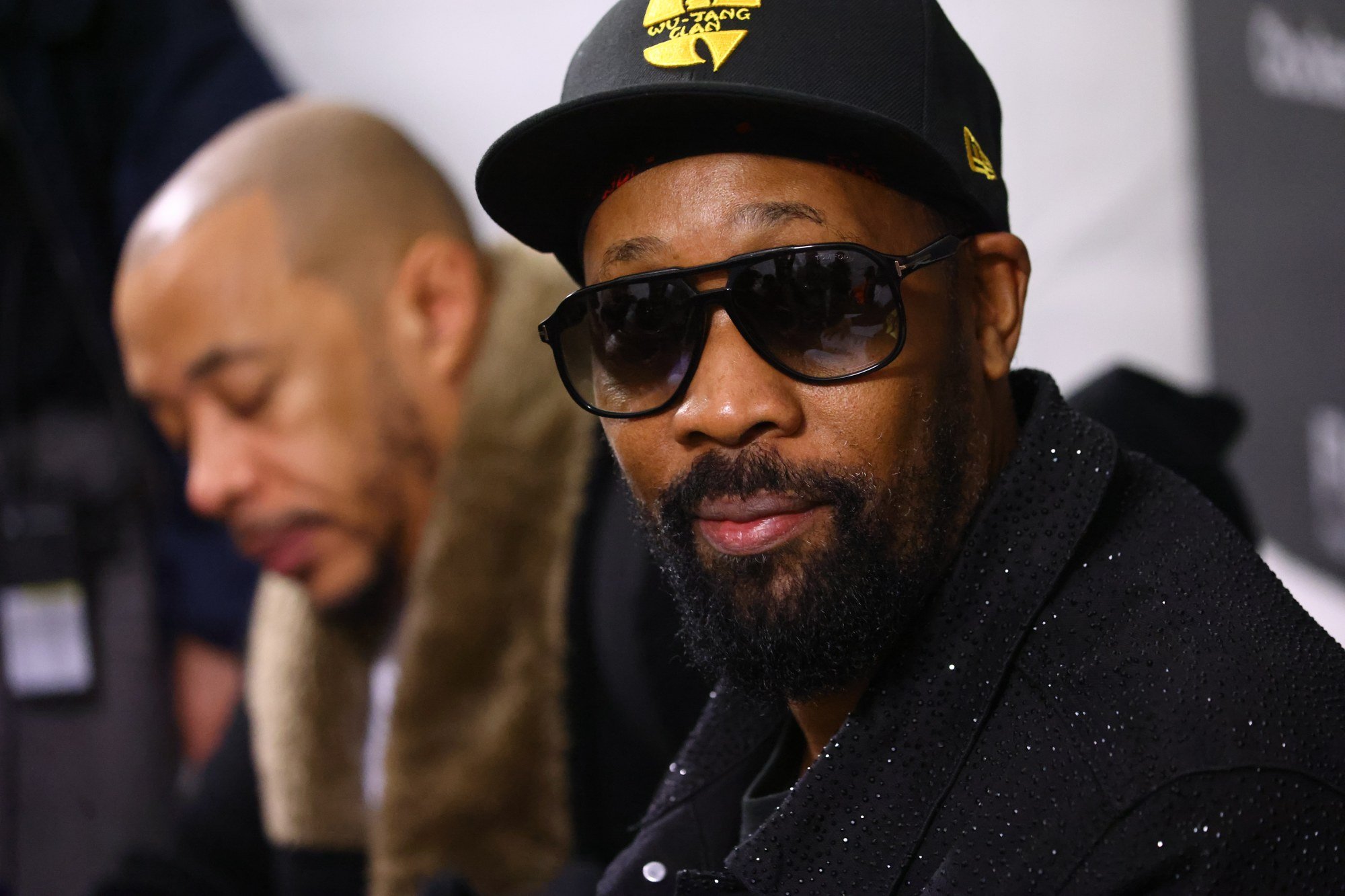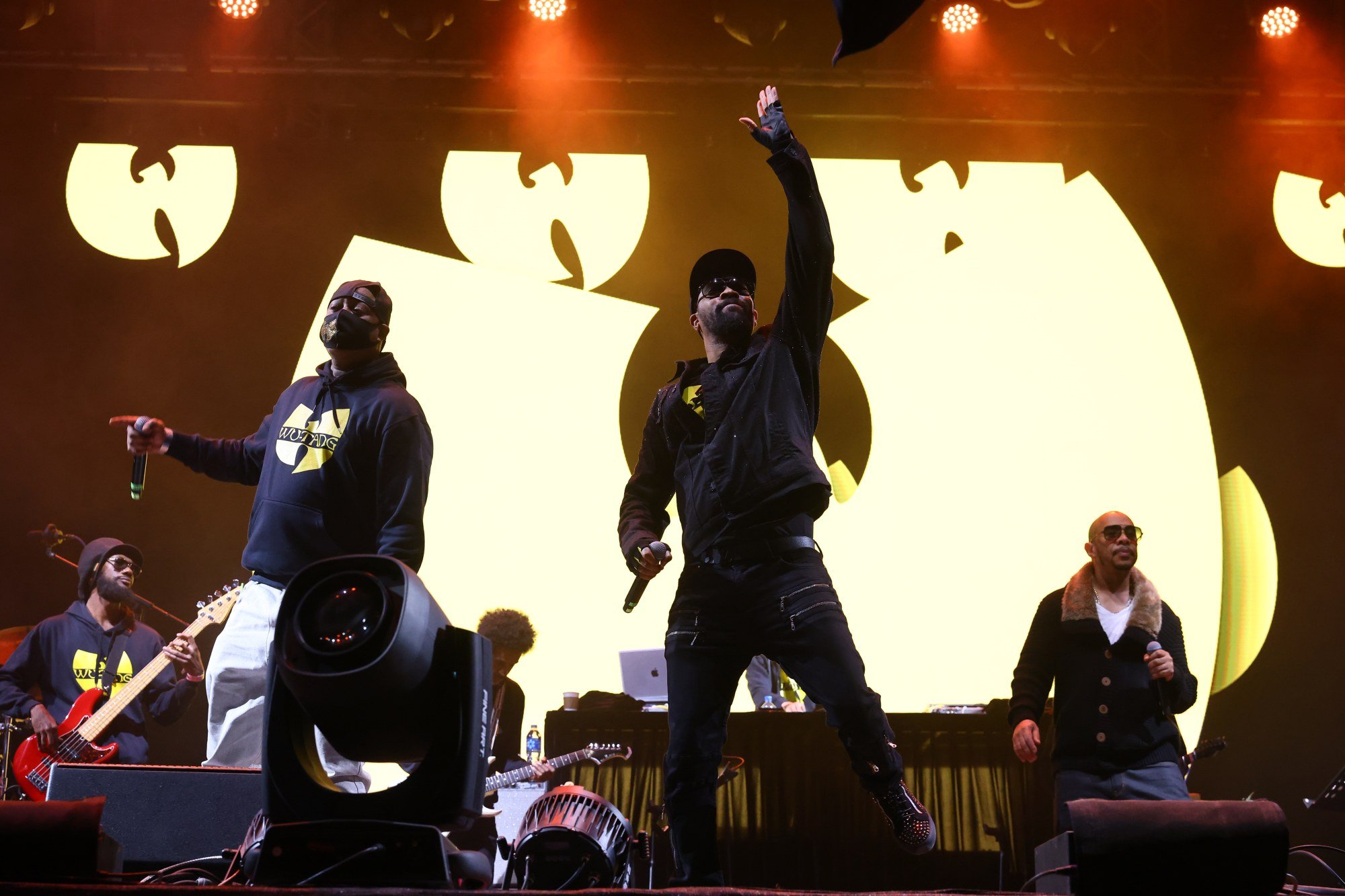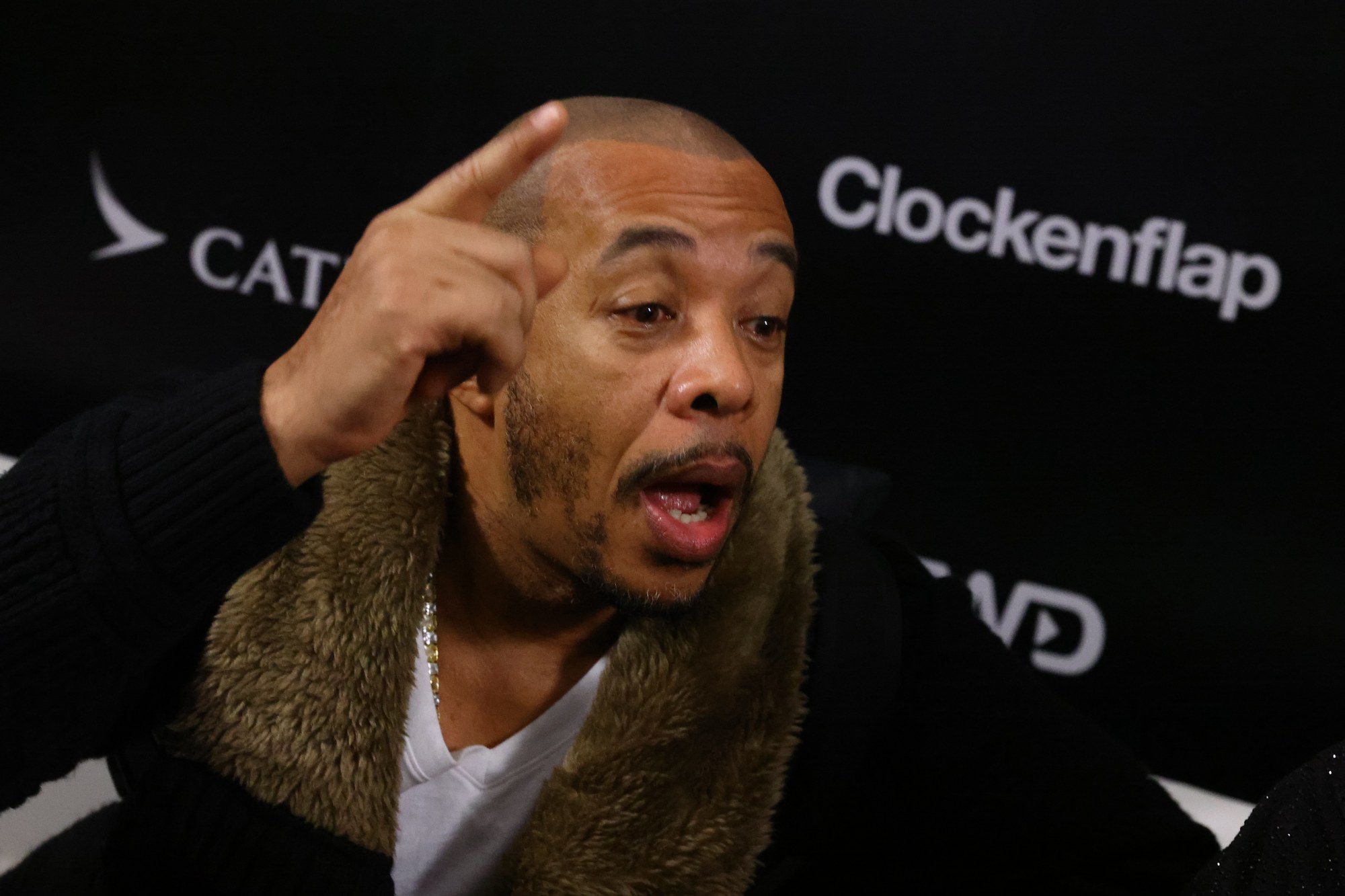Wu-Tang Clan on 50 years of hip-hop and Hong Kong kung fu cinema: RZA and co weigh in on John Woo, the movies that inspired Enter the Wu-Tang (36 Chambers) – and the OG MCs they really respect

Which means the world’s most popular music genre is having an almighty 50th birthday moment this year.

“That’s what Hong Kong means – homecoming,” quipped Cappadonna, as we sat down to chat. But it was MC, producer, filmmaker and de facto leader RZA who had the most to say.
Here’s what we learned from 15 frantic minutes in the company of five-ninths of the one and only Wu-tang Clan, before they stormed the stage, closed the festival, and finally brought “da ruckus” home to Hong Kong.
9 of Pharrell Williams’ boldest looks ever, from Nike and Adidas to Hermès
Celebrating hip-hop’s 50th birthday
Cappadonna: Hip-hop is a way of living, we live hip-hop, you look at everything we do, it’s natural.
RZA: It’s every expression – to the way we dress, the way we talk, the way we live – it’s the chi.
Cappadonna: This is what keeps us together, this is what keeps us grounded and keeps us wanting to do more for our culture. Wu-Tang is for the children and we hope there’s a lot of children out there [on whose lives] we can make a big impact.
Masta Killa: Hip-hop is a vibration like an earthquake that shook the entire world, everything.
Inspectah Deck: We’re trying to take it to hip-hop [at] 100.
RZA: The 50th year isn’t the top of the mountain, it’s the base of the mountain, we got a long way to go.
The influence of Hong Kong cinema
RZA: John Woo is a friend of mine. We met in 95-96, he came to America, became a friend. He was the first director to teach me. I talked with John Woo many times – before Jim Jarmusch, before Quentin Tarantino, John Woo was the first one who taught me how to be a director, and his movies – A Better Tomorrow, Hard Boiled, The Killer, Bullet in the Head … you know what I mean?
Because listen, “a better tomorrow” is something that everyone should strive for – if today is good, that’s great, but how about a better tomorrow? That philosophy we live. We came from a place where our tomorrow was looking bad, but we made it better for ourselves, and then we’re making it better for others.

Hip-hop culture – before and after Wu-Tang
RZA: When we first heard hip-hop, maybe 500 people could do it – maybe 200 really – and so that generation that was before us were doing it in the parks, making tapes. Then the Run DMC generation comes and it becomes on record. But then when the Wu-Tang comes up we become another pillar, another lamp post – you can see how hip-hop was before us, and after us – and one thing we were able to do with hip-hop was meld cultures. Therefore it comes more like acceptable.
A good friend told me he loved NWA, but he couldn’t personally relate to them – but when he heard Wu-Tang he was able to relate because it was the comic books, the chess, the martial arts movies, the study of consciousness, it was something beyond, it was something else.
Red carpet recycles: 7 Hollywood stars who re-wore their designer outfits
The other OG artists they respect?
U-God: Run DMC, LL Cool J, De La Soul, A Tribe Called Quest, Melle Mel …
Inspectah Deck: Outkast, Dr Dre … the whole west coast.

On visiting the site of Shaolin vs. Wu-Tang – the 1983 Hong Kong kung fu movie that inspired the band’s name
RZA: It’s incredible for us to be here and touching this ground. Starting from Staten Island, New York – which we named Shaolin, inspired by the film and inspired by a lot of great Hong Kong films that we sampled – it’s great to come here and share our art back to this place.
U-God: I wanna see the retail spots, I wanna see the factories, I wanna see what’s going on – I want a teddy bear that’s a dollar, so I can bring it back to the US and sell it for US$300,000. That’s what I want.
RZA: I’m actually gonna go look and check out some of your stunt teams. I’m preparing a new film and I think I’m gonna try to pull a stunt team right from Hong Kong.
See ya later Sk8er girl? Inside Avril Lavigne’s dramatic style evolution
How Wu-Tang Clan inspired a generation of Asian rappers
RZA: A cycle is a circle that consists of 360 degrees, so for us it’s like an arc that we absorb, translate and put back out into the world – and then this side of the world translates it and puts it back out, and it continues to keep the cycle going. It’s a blessing for us.

Why RZA sampled from vintage kung fu movies
RZA: Whereas a lot of producers before me were highly inspired by jazz, James Brown, soul – me, I just wanted it to be [pure] hip-hop. I didn’t want someone to take this away and put it over there, that was my foundation. Being an MC, my goal was to make something that, whatever else, the MCs are going to want to rap on. I don’t care if you don’t dance.
Wu-Tang still practise martial arts
U-God: A little bit of taekwondo, a little bit of chin na …
RZA: I’ve been very fortunate personally to have my son take classes now, so I’m keeping it easy, but my son is actually into Muay Thai now. My foundation is hung ga, my sifu from the clan showed me the hung ga, tiger/crane form, and also seven star mantis.

Why today’s politicians should listen to youth
RZA: Hip-hop is an expression of the youth, and the youth are the future, so you’ve got to listen to them, because they are the ones who are going to control the future. If the youth is complaining that everything is green and we don’t like it, then you’ve got to adjust to that. Because if we make them robots or zombies, with no expression of themselves, then the whole place becomes sterile.
Luxury idols: who is Blackpink’s most powerful member? Brand values, ranked
I won’t get too political, but it’s just like in America, there was a period of time when there was separation and segregation, and people were held down, but then when those people weren’t held down no more, they had to eat, they needed clothes, they needed shelter, then the government gotta go pay for that. So now the value of the dollar caused inflation. If you don’t take care of things at the surface, the problem grows to be a bigger problem – so therefore you’ve got to pay attention to the youth.
… and Wu-tang Clan’s message back to the youth
RZA: Listen, knowledge is the basically foundation of all things in creation, so they should always pursue the knowledge – knowledge means to look, listen, observe and respect, and to know.

- Why are Wu-Tang Clan named after the obscure 1983 Hong Kong martial arts film Shaolin and Wu Tang, anyway? We asked leader RZA on the group’s first visit to the city
- Inspectah Deck, U-God, Masta Killa and Cappadonna also weigh in on hip-hop’s ‘birthday’, practising martial arts, and the importance of listening to the youth and pursuing knowledge